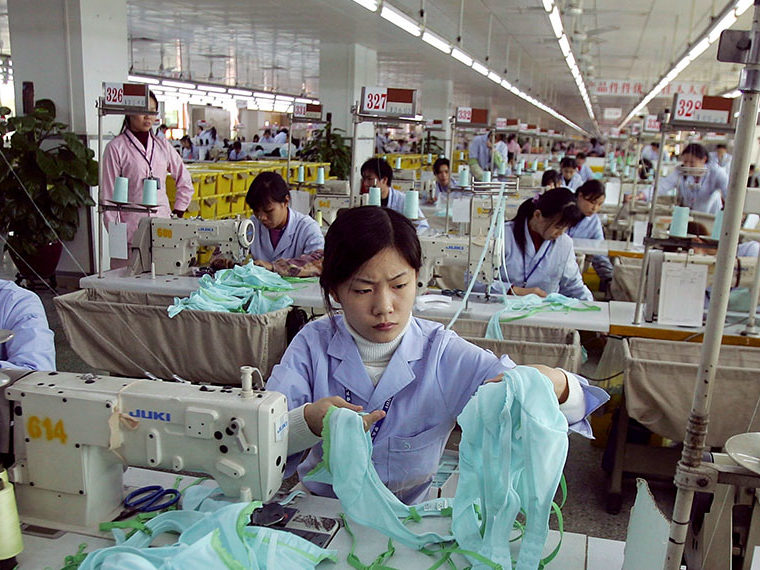Warehouse pickers perceive process to be fairer
It’s the rare workplace these days that doesn’t dance to the tune of the almighty algorithm. The first hurdle in landing a new job may be getting past the data analytics program that many employers use to vet candidates. Once onboard, deliverables may be driven by internal data trained on greater efficiency and external market analytics. And then there are the algorithms that have been unleashed to track worker productivity.
The rise of the algorithm-driven economy raises plenty of concerns. There’s the potential bias in the computer program itself, given that even with machine learning, there’s still a human being writing the initial algorithm. For workers there’s the loss of being seen as a human being with unique talents. And then there’s the assault on privacy in a tracked workplace.
Opt In to the Review Monthly Email Update.
A Productive Plus for Quantitative-Type Jobs
That said, research published in Manufacturing and Service Operations Management makes an interesting case that the strategic deployment of algorithms for certain types of jobs can be a win-win for management and workers.
The field experiment was conducted by Washington University in St. Louis’ Bing Bai, Dennis J. Zhang and Fuqiang Zhang, UCLA Anderson’s Hengchen Dai and Alibaba Group’s Haoyuan Hu.
When workers in a retail distribution warehouse were led to believe their workload was determined by an algorithm, productivity rose an average of 17.9%, compared with workers who were led to believe their workload was being set by a manager. When the researchers controlled for worker demographics, time of the day and actual workload assigned to them, the average productivity boost would still be 15.6%.
Researchers caution that their sample size — 50 workers — was small.
Those gains seem to flow from happier workers. The participants who were led to believe their workload was set by an algorithm reported a higher sense of fairness than those who thought their workload was at the whim of a manager.
This finding — landing big productivity gains without alienating employees — should be of interest to managers trying to maximize daily performance.
Much-Maligned Algorithmic Management Finds a Fan Base
Alibaba, China’s dominant online retailer, opened one of the distribution warehouses in its network to the researchers in 2019. The focus was on warehouse “pickers,” workers who spend their shifts traveling around the stocking shelves and literally picking up ordered goods and sending them on their way to the next stage of the fulfillment/shipping process. Workers are paid an hourly rate.
Throughout a shift, pickers receive a “pick list” that typically has about 20 items to collect. When one list is completed, another is assigned.
The researchers focused on 50 workers who were not aware of the objectives of the field experiment. Half of the workers were handed a pick list from a manager, the implicit message being that this person had a say in determining a picker’s workload. The other half got the algorithm treatment: They scanned a bar code with a work-provided device to see their pick list, ostensibly removing the human manager from the assignment process. For both halves, pick lists were displayed on a device when workers pick up ordered goods, and the process of completing a pick list was the same.
The researchers took care to make sure there was no difference in the difficulty of any given pick list across the two delivery systems. And in reality, all assignments were in fact set by an algorithm, across both groups.
The assignment process for this field experiment was a change from the regular system where pickers grabbed a printed pick list from a pile on a table in the distribution center.
The researchers were able to track the speed at which workers completed their pick lists, constructing a measure that accounted for the number of items on the list and the time spent. They collected data on nearly 4,500 pick lists over the two weeks.
Workers led to believe an algorithm was responsible for their work assignment were 15.6% to 17.9% more productive than workers who were handed their assignment from a manager.
Sensitivity to Fairness a Factor in Productivity Leap
The workers were also asked a series of questions after their shifts to ascertain their perception of both assignment processes and as a means for the researchers to explore the underlying psychology of what may be at play.
Algorithm-assigned work was deemed to be fairer. The researchers also found that the largest productivity gains among the algorithmic group was from workers who reported a higher sensitivity to fairness in the workplace.
A second, similar, field experiment produced similar results.
Additional research suggests the upside to algorithm-based work assignments may not be specific to the Chinese warehouse workplace. More than 200 participants in a Mechanical Turk U.S. experiment were asked to imagine they were a warehouse picker. The process by which they were “given” their assignment replicated how things worked in the Chinese field experiment. Here too, participants who were told their workload was spit out by a machine-based algorithm deemed the process fairer. A second Mechanical Turk experiment produced similar findings.
Warehouse Work Is Different
What motivates workers can vary based on the nature of the work. In some settings, workers want to be valued for what they personally — uniquely — bring to the table.
In the Chinese warehouse field experiment, workers clearly prioritized the equality factor. “Our finding that people view a decision process as fairer and work more productively when the process is seemingly driven by an algorithm (vs. a human) provides an example where the framing of work assignment affects operational efficiency,” the team writes.
Productivity gains are an obvious management win. The intriguing insight of this research is that, for certain types of workers, it may be achievable through a mechanism that does not impair their morale.
Featured Faculty
-
Hengchen Dai
Associate Professor of Management and Organizations and Behavioral Decision Making
About the Research
Bai, B., Dai, H., Zhang, D.J., Zhang, F., Hu, H. (2022). The Impacts of Algorithmic Work Assignment on Fairness Perceptions and Productivity: Evidence from Field Experiments. Manufacturing and Service Operations Management. https://doi.org/10.1287/msom.2022.1120






